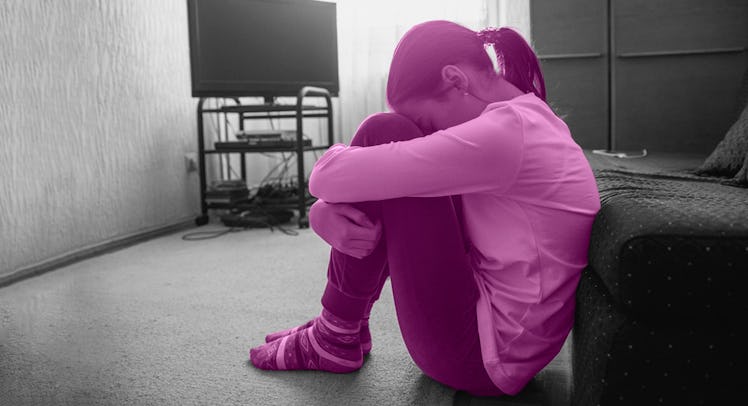How to Help a Teen or Tween With a Broken Heart Move On
The brain of a tween is built to understand the here and now, which makes heartbreak feel like forever, but parents can help if they avoid talking about fish in the sea.

By the time a kid hits their tweens, they’re on the cusp of puberty and have often started discovering they have strange new feelings for other people. They have reached the age of awkward flirting and impossible crushes. For parents, this chaos of the heart is often observed from a chagrined remove, but when an adolescent heart gets broken, parental empathy often brings them to intervene. In those moments knowing what to say to a teary kid can make all the difference, and it helps to understand the physiology behind the hurt.
“Your kid’s brain is on the cusp of being able to really think about the future,” explains Dr. Joseph Shrand, Chief of child and adolescent psychiatry for CASTLE (Clean and Sober Teens Living Empowered) and author of Do You Really Get Me? “Everything happens here and now. They don’t have the abstract thought to think about the future. That’s why these heartbreaks are so profound for kids.”
Shrand notes that because kids are rooted in the present, it often feels like the hurt will last forever. That’s not just wrong thinking, as some parents might assume. It’s a function of their current brain development. That’s why it doesn’t really help for parents to tell a kid they’ll get over it. They honestly don’t feel they will.
More helpful, then, is an explanation of why they feel like they do. “We teach them what’s happening is normal,” Shrand says. He often broaches the subject by talking with kids about how their shoe size has changed. They couldn’t fit in the shoes they wore when they were 4-years old. “That’s changed and this will change too,” he tells heartbroken kids.
Parents can also use these moments of adolescent heartbreak to praise a child’s empathy. It’s actually a very good thing that they care so much for a person that they would be so deeply affected. But heartbreak is not the time to lean into easy narratives of cliches. It doesn’t help to tell a kid to get over it, or badmouth the heartbreaker, or talk about how there’s other fish in the sea. The thing to do — really, the only thing to do — is keep lines of communication open.
“Let’s think of it from a kid’s point of view,” Shrand says. “A kid who’s had their heart broken is beginning to think they have less value. Maybe they’re ashamed and feel something is wrong with them.”
The goal isn’t to minimize, but to contextualize. Above all, Shrand says, parents need to approach the conversation about heartbreak with openness and honesty. That’s what will be crucial to keeping a kid from retreating and spiraling into their own little world of self-doubt.
How to Help a Heart Broken Tween
- Don’t minimize a kid’s feelings, and recognize their brain makes them feel like the pain will last forever.
- Do talk about the fact that their brain is changing and that it not their fault. It will get better.
- Praise the kid for their empathy and for being able to have such strong feelings.
- Remind them that sometimes things fall apart because they don’t fit, not because they are bad.
- Approach the conversation with openness and honesty.
“Kids know when people are being honest with them,” Shrand explains, ”They have great detectors for phoniness. So don’t be phony with your kid. Respect them. Respect leads to value and value leads to trust.”
That openness and honesty is often exactly the opposite of what parents want to do: coddle, shield, and soothe.
“We want to protect our children, but protecting a child does not mean you immunize them from being hurt,” Shrand says. “You have to help them feel hurt and realize that that’s not a bad thing and they’re going to learn from it.”